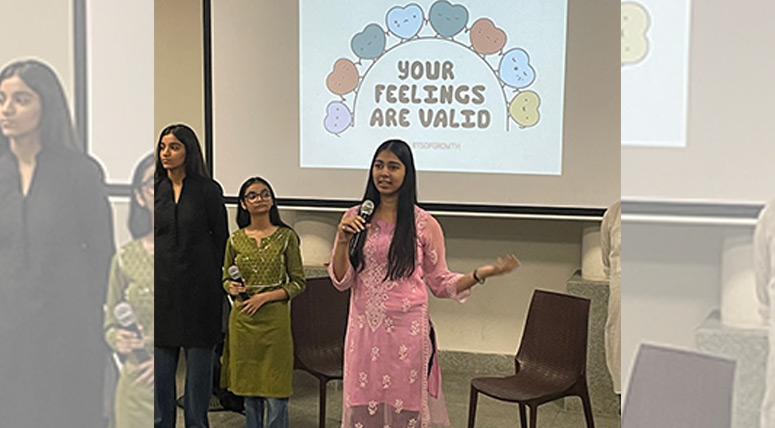THE SELF BELIEF CHANNEL | CBSE BOARD EXAM 2024
SERIAL-1
Welcome to the empowering world of Team MRIS VIBES! Our innovative Self-Belief Channel is your dedicated source of motivation, leading the CBSE Board examinees toward their triumphs over the fear of the unknown. We are here to support and motivate you to conquer the lurking fear enveloping the minds of almost every examinee! So, let’s unlock your potential and conquer the exams together!
Balancing Act: Managing Academic Pressure and Mental Health during CBSE Exams
The Central Board of Secondary Education (CBSE) Examination is a crucial milestone in the lives of millions of Indian students considering that the Board Exams OF 10th and 12th are designed to evaluate student’s knowledge, provide them with credentials, and maintain educational standards. ‘Board classes’ (10th and 12th) noticeably come with more academic pressure than any other academic year because these examinations allegedly decide where an individual stands in his/her community.
The results of these examinations not only impact students but also shape how they are treated in society. Therefore, the result of this examination carries a lot of social weight and affects one’s opportunities, status, and interactions with others. Evidently, students of schools in India often are burdened by the expectations of parents, teachers, and society to be ‘better’ which in addition to the academic pressure can lead to a toxic environment around the child and can cause several mental health issues.
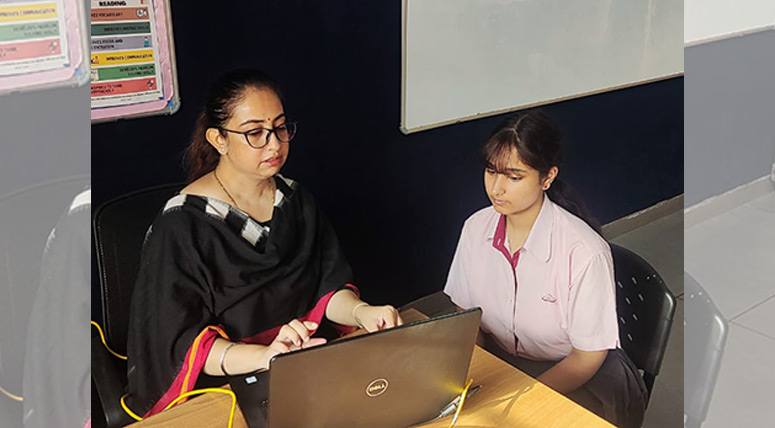
Exams are a vital tool for students to assess their academic ability and areas for refinement. Students of the top schools in India can examine and evaluate their strengths and shortcomings by analyzing their exam performance, which can help them set realistic academic objectives and build ways to accomplish their goals.
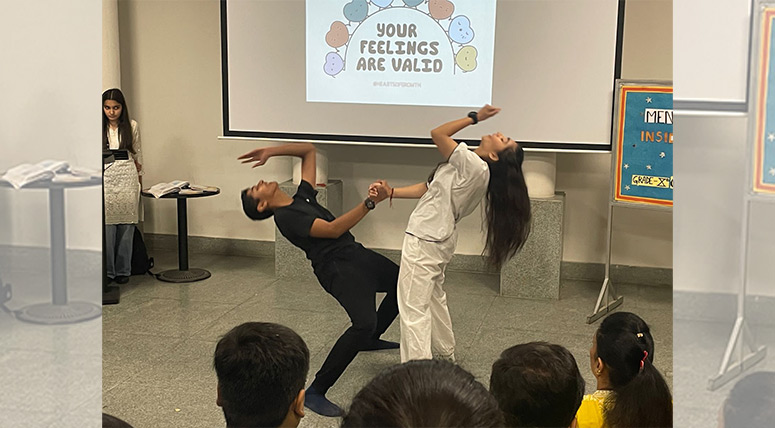
Manav Rachna International School, Sec- 14, one of the best schools in Faridabad, is dedicated to helping students effectively cope with board exam stress through a holistic approach to education. They provide personalized counseling and support systems to address individual needs, offer stress management workshops, and encourage a balanced routine with regular breaks for physical activity and relaxation. The institution cultivates a supportive atmosphere where educators and mentors actively interact with students, enhancing their self-assurance and ensuring thorough preparedness for board exams. Moreover, they underscore the significance of mindfulness and self-nurturing, prioritizing mental and emotional well-being alongside academic achievement.
Internal pressure, such as a determination to do well, or external pressure, such as a longing to get into a prestigious college or university, can both create self-doubt among many and deter one’s social, emotional and behavioral development.
It is critical to understand that the students’ mental health plays a vital role in their academic performance. There are umpteenth reasons like the fear of failure, uncertainty about future, and the colossal amount of syllabus that can cause anxiety, stress. In some students, THIS can cause depression too.
According to a report issued by The Times of India, we, as a society, are not making students realize that mental well-being is much more important than any exam. It is necessary to understand that a healthy mind is most likely to perform well academically whereas a high amount of stress can affect cognitive thinking and decision-making abilities.
Ignoring mental wellness can be detrimental and can lead to collapse in academic performances and further degenerate mental health. To strike a balance between mental health and academics during the Board Exams, CBSE-affiliated schools can keep the dangers of anxiety, stress and depression at bay with right counseling and will eventually lead to academic excellence.
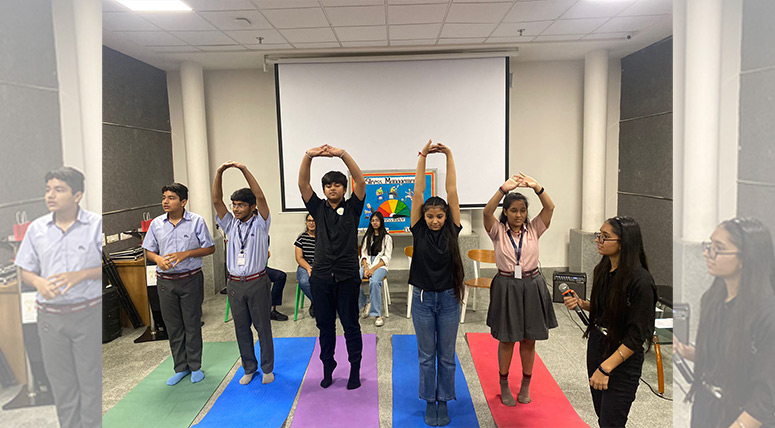
In Psychology, examination stress has been described as ‘evaluative apprehension’ or ‘evaluative stress’. An increase in the levels of stress can be detrimental for students’ attention and performance. Those who suffer from ‘test’ anxiety are inclined to observe assessing situations as personally threatening; in test situations, they are often anxious, agitated, worried, and emotionally aroused. The undesirable self-centered thoughts which they experience divert their attention and interfere with concentration during examinations. ‘High Test’ anxious students respond to examination stress with strong emotional reactions, negative thoughts about themselves, feelings of inadequacy, guilt, hopelessness, helplessness, and loss of status and esteem that impair their performance.
Another research study, carried out by the National Library of Medicine, aimed to determine if the examination phase truly caused stress and emotional turmoil or not. The study found that stress levels periodically increased leading up to the exam period, peaked during the exam, and notably decreased after the exams concluded. Moreover, it revealed that this heightened stress during exams was linked to a greater likelihood of experiencing a slower and less effective recovery from mental distress following the examinations.
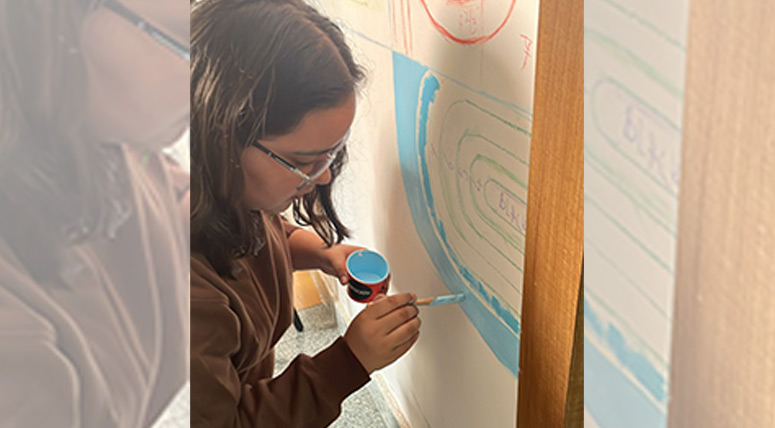
As per the Yerkes-Dodson law there is a link between arousal levels and performance. In fact, higher arousal levels can help you do better in exams, but only up to a certain point. If these stress levels cross that line, the excessive anxiety that one might experience can constrain with test performance. Little amount of nervousness can be helpful, making an individual feel mentally aware and ready to confront the challenges presented in an exam- however in huge quantity, it is not welcomed.
Here are a few strategies on how to balance academic pressure and mental health.
- Time Management: Making a timetable/study plan can help one balance workload and avoid last-minute rush. It also helps one find enough time for relaxation and study time so that productivity is enhanced and burnout is avoided.
- Seeking support: Communication is the key. It is necessary for students to deliberate their struggles with their family, friends, or teachers who can help in identifying pliable solutions to the problems and minimise stress.
- Healthy lifestyle: Promoting a healthy lifestyle is vital for good mental well-being. Having a good sleep schedule, proper nutrition, and regular exercise can significantly work towards the betterment of mental health.
- Avoid comparison: Every student is unique and has his/her weaknesses and strengths. It is significant to focus on individual growth rather than comparing with others. We are very often taught to compare ourselves to others but the only thing we ever should be doing is comparing ourselves to our past selves.
- Be realistic: While working towards perfection is admirable, we need to understand that no one is perfect. Learning to accept your limits is important.
- Being consistent and doing regular revision: “With consistency and reps and routine you’re going to achieve your goals and get where you want to be.” ~ Mandy Rose. Being consistent in studies and regularly revising the learned material reduces the burden during exams.
- Preparation of notes: Preparing notes can be highly helpful with quick revisions. Various kinds of note-taking methods can help students. For example, the Cornell method, outline method, boxing method, etc all of these have different kinds of advantages but one should use whatever works best for them.
- Taking breaks: Short breaks between study sessions refresh the mind and prevent burnout.
- Positive mindset: Having a positive mindset is essential. Self-affirmations can help in gaining confidence and reducing anxiety.
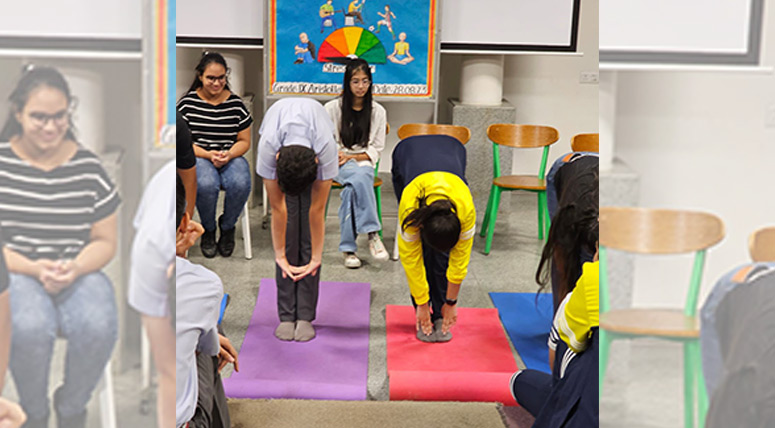
Balancing mental health and academic pressure during CBSE exams is an essential yet difficult task. We should remember that the pursuit of knowledge and success should not come at the cost of a student’s mental health. By implementing the mentioned strategies and fostering a supportive environment, students, parents, teachers, and the education system can collectively work towards a healthier and balanced approach to education. Society needs to support these efforts as the well-being of our youth is an investment for a brighter future. Wishing everyone a sane mental health…Happy Studying!
AUTHOR: Ms. ANSHITA MEEN, PGT PSYCHOLOGY, MRIS 14, FARIDABAD


